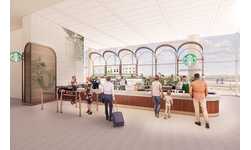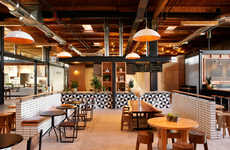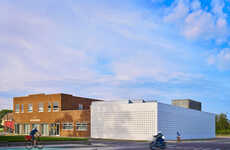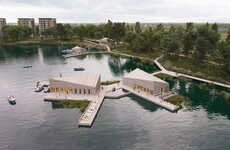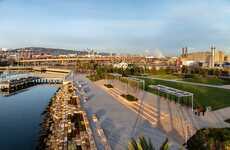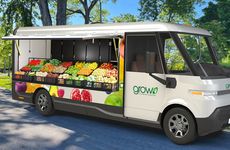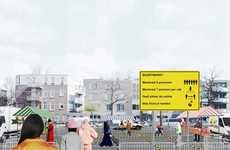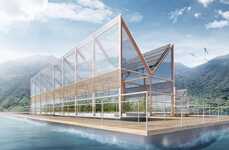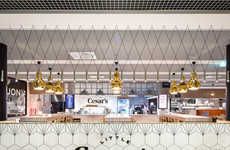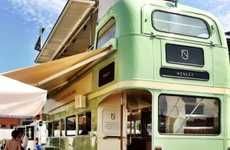
OMA has Revealed Plans for a Community-Enriching Louisville Food Port
Rebecca Byers — February 23, 2015 — Lifestyle
OMA has revealed a revolutionary master plan for a Louisville Food Port that will see the transformation of a former tobacco factory into a multi-use facility that is sure to bring life to the surrounding neighborhoods. The Louisville Food Port that will at once be a hub for growing and buying fresh produce, a recycling plant, an edible garden, a coffee roastery and retail spaces.
The Louisville Food Port will sprawl over the ten-acre plot and aim to make sustainable produce readily available to urban neighborhoods at risk of becoming a food desert. The project will also support local farmers and include plenty of space for farmer's markets.
The concept for the Louisville Food Port is an innovative example of combining architecture and food in a way that will stimulate close by communities and encourage a healthier way of life.
The Louisville Food Port will sprawl over the ten-acre plot and aim to make sustainable produce readily available to urban neighborhoods at risk of becoming a food desert. The project will also support local farmers and include plenty of space for farmer's markets.
The concept for the Louisville Food Port is an innovative example of combining architecture and food in a way that will stimulate close by communities and encourage a healthier way of life.
Trend Themes
1. Urban Agriculture - The concept of transforming urban spaces into agricultural hubs presents an opportunity to address food insecurity and promote sustainability.
2. Circular Economy - By integrating recycling plants and edible gardens into the food port, there is potential to create a closed-loop system that minimizes waste and maximizes resource efficiency.
3. Community Revitalization - The Louisville Food Port project demonstrates the potential for repurposing abandoned industrial spaces to create vibrant community hubs that address multiple needs and foster economic growth.
Industry Implications
1. Architecture & Design - Incorporating sustainable features and innovative design elements in food port projects can redefine the role of architecture in supporting community well-being and resource management.
2. Sustainable Agriculture - Collaborations between urban farmers, local producers, and food port initiatives can revolutionize the way fresh produce is grown and distributed in urban environments.
3. Retail & Grocery - Partnerships with retail spaces within food ports create unique opportunities to provide consumers with access to local, sustainable products while supporting local businesses.
3.9
Score
Popularity
Activity
Freshness

